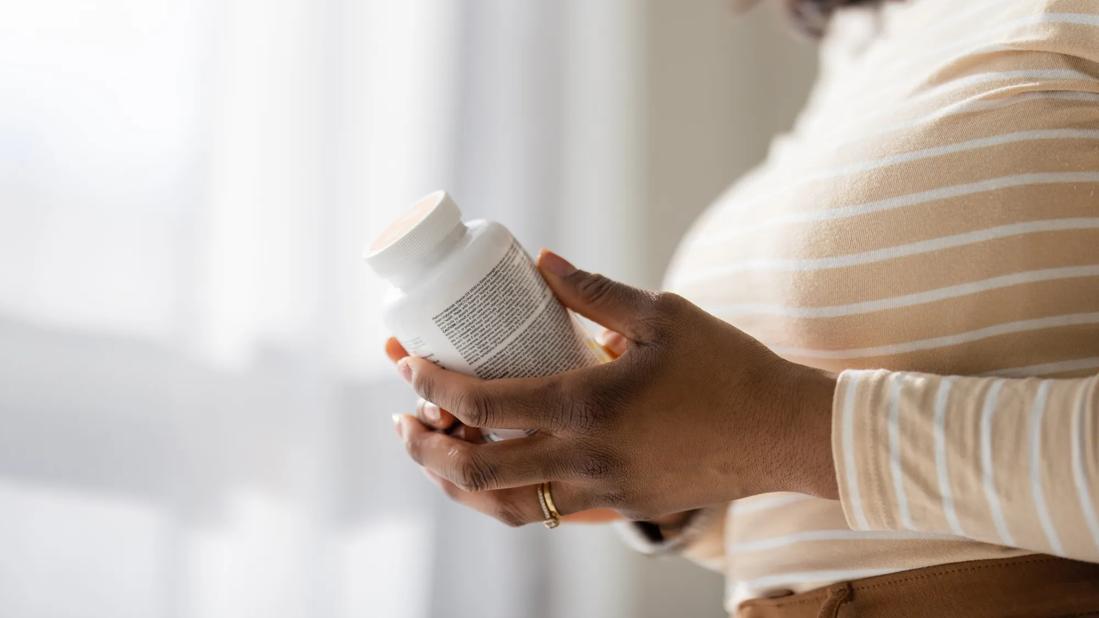The pros and cons of taking prenatal vitamins when you’re not pregnant depend on your age, ethnicity and health

Growing another human inside you takes a lot of energy and added nutrients. Prenatal vitamins can provide those nutrients. But could those extra vitamins and minerals benefit you even if you aren’t pregnant?
Advertisement
Cleveland Clinic is a non-profit academic medical center. Advertising on our site helps support our mission. We do not endorse non-Cleveland Clinic products or services. Policy
“Ideally, we’d get all the nutrients we need from food,” says certified nurse midwife Najma Ibrahim, CNM. “But that doesn’t always happen. Many people need a multivitamin to supplement their diet. Prenatal vitamins can do that — even if you aren’t pregnant. But they aren’t the right choice for everyone.”
Ibrahim explains all about prenatal vitamins and how to know if they’re a good multivitamin option for you.
Prenatal vitamins are specially formulated to support pregnancy and fetal development. They contain higher amounts of three specific nutrients needed during pregnancy:
Advertisement
“Prenatal vitamins contain all the basic nutrients you find in a multivitamin,” Ibrahim says. “But they are made to accommodate fetal development and the bodily changes you experience during pregnancy.”
Some of the vitamins and minerals in prenatal vitamins can be valuable outside of pregnancy. But the benefits of prenatal vitamins for nonpregnant women may depend on certain factors, like:
“Some people simply like taking prenatal vitamins outside of pregnancy because the iodine and iron they provide support hair and nail growth,” Ibrahim shares. “But it’s always a good idea to talk to your provider before taking prenatal vitamins instead of a traditional multivitamin.”
Whether you’re pregnant or not, it’s critical to note that there are no nutrient requirements for a vitamin to be labeled “prenatal.” The nutrient content can vary from brand to brand, so always read the label.
But there aren’t too many risks associated with taking prenatal vitamins outside of pregnancy, Ibrahim says. The main concern involves overconsumption of some nutrients — namely folate. Taking too much can lead to health concerns, such as:
Advertisement
“If you’re taking prenatal vitamins or any multivitamin, you don’t need to take additional vitamin or mineral supplements,” Ibrahim states. “Since prenatal vitamins are so high in folic acid, it’s very easy to consume more folate than you need.”
If you and your provider agree that your diet isn’t providing enough vitamins and minerals, then a vitamin supplement can help. Usually, a traditional multivitamin is enough.
“Multivitamins are amazing and can provide your body with essential nutrients,” Ibrahim says. “But there’s nothing better than food to nourish the body and give it what it needs.”
If you’re of childbearing age or need the added vitamins and minerals that prenatal vitamins offer, she adds that there’s no real danger in taking them. But she also recommends speaking to your healthcare provider about it and comparing prenatal brands.
“Look at all the different types of prenatal vitamins available and find one that works for you,” Ibrahim advises. “And make sure it contains the nutrients that most people are low in, such as vitamin D, iron and calcium.”
Advertisement
Learn more about our editorial process.
Advertisement

Properly prepared, elderberries can be a safe and healthy part of a balanced diet — just steer clear of supplements

Science doesn’t support most claims about this bee byproduct, and supplements have potential risks

The meat-based elimination diet restricts important food groups — like fruits and vegetables — that keep you healthy

Eat your fill of vitamins C, B6 and E, plus zinc and selenium

The vitamins, minerals and other nutrients in the food you eat are essential for a healthy heart, but supplements are another story

Early research shows that this supplement may help, but more studies are needed

The natural supplement may help with weight loss, lower blood sugar and protect your heart

Over-the-counter pills, powders, extracts and tinctures can interact with other medications and cause unexpected side effects

The tropical fruit is a good source of antioxidants and vitamin C

Most people fall asleep within 10 to 20 minutes, but if your experience is different, adjusting your sleep schedule may help

Exploring your hidden side can lead to better understanding of what makes you tick